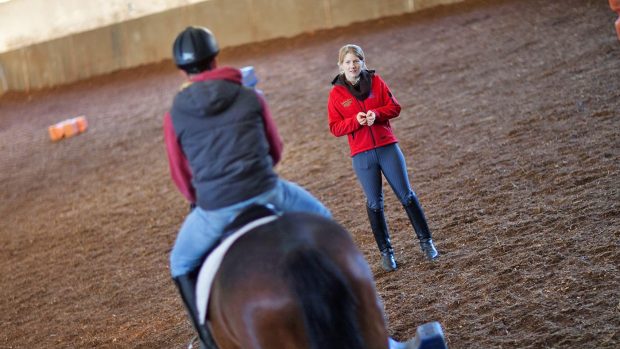A new coaching certificate designed to raise the quality of equestrian coaching has been launched by the British Equestrian Federation (BEF).
The United Kingdom Coaching Certificate (UKCC) has been produced by the 16 member bodies of the BEF, with funding provided by UK Sport.
It forms part of a government initiative to create recognised standards of coaching across all sports, and equestrianism is one of the first 21 to be involved.
Head of sports development at the BEF Suzanne Genery said the basic aim of the UKCC was to improve education programmes for coaches and to support the development of coaching as a profession.
She said the system was “designed to enhance the existing systems and structures” of qualifications other organisations such as the British Horse Society (BHS) already have in place.
Director of standards at the BHS Margaret Linington-Payne welcomes the move.
“It can only help to make coaching better, with a more rider-centred emphasis. It should mean we move away from the traditional military style of teaching,” she said.
She explained that over the past year the BHS has been adapting its Preliminary Teaching Test (PTT) so that it can form part of the UKCC Level 2.
She stressed that the UKCC is not in itself a riding or stable management qualification, adding: “To become an Assistant Instructor [BHSAI] a candidate must have completed the BHS Stage 3 horse knowledge, care and riding exams as well as the PTT and portfolio. If a candidate registers for UKCC Level 2, they would also receive that qualification.”
Those who already hold the BHSAI qualification will be able to incorporate UKCC qualifications by attending a short course.
Coaching development officer for the Association of British Riding Schools (ABRS) Duncan Brown said the ABRS was completely behind the UKCC.
“It’s a fantastic opportunity for people to get coaching recognition,” he said, adding that the certificate may replace the ABRS instructional exams. Those who already hold a teaching qualification would not necessarily have to do everything again, he pointed out.
This news story was first published in Horse & Hound (13 September, ’07)




